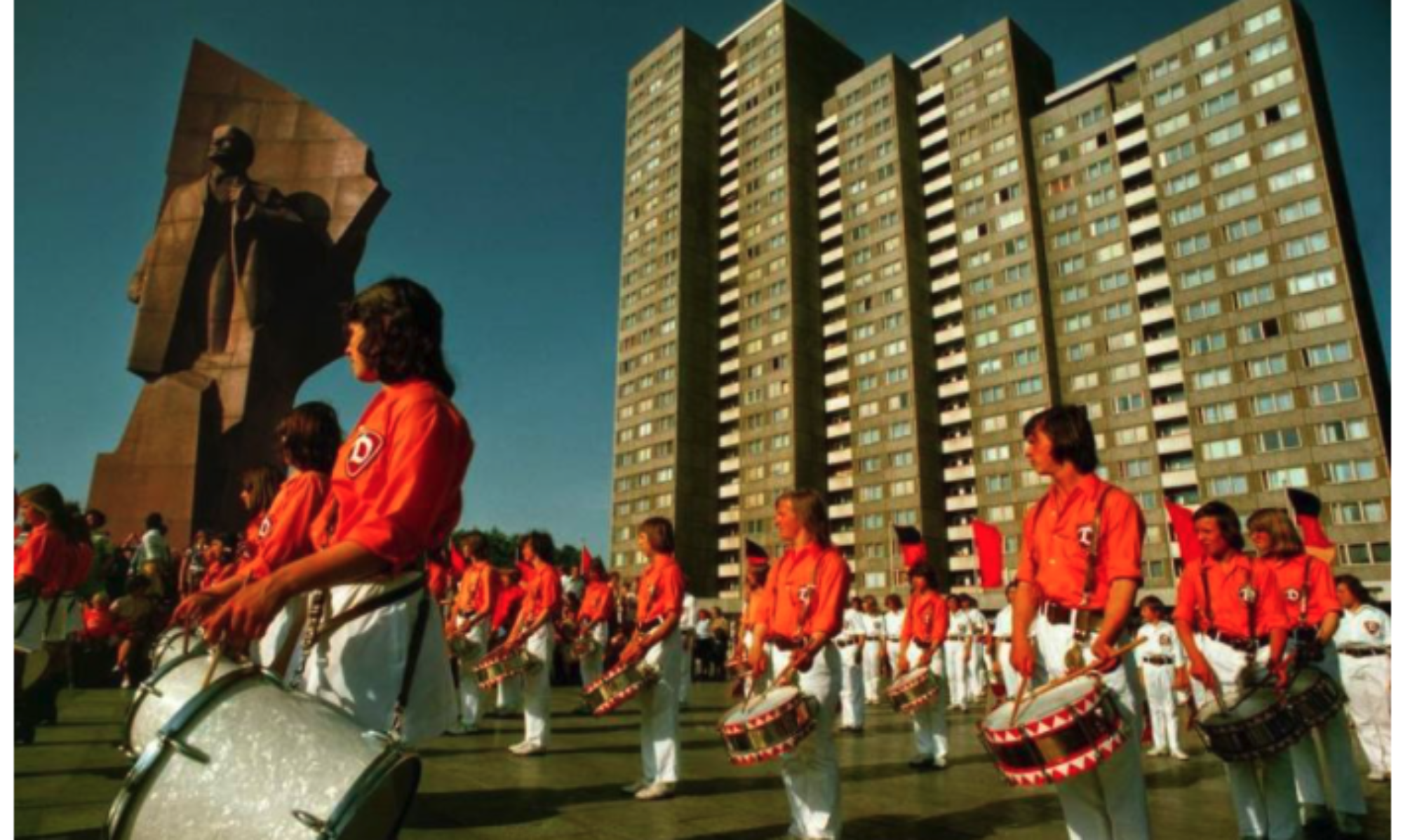I find it interesting how Wolfgang Becker shows the differences between the old life in the GDR and the new life after capitalism comes into East Germany. Alex and Ariane are now more interested in Western commodities and show distaste towards old East German products, like food. Earlier, Alex and his girlfriend find an abandoned apartment, showing the eagerness of East Germans to leave communism to go to the capitalist side. In a scene at a party, everyone was happy and drinking now that they were “free” from communism.
In the end though, the mom relapses and ends up dying, but not as an effect of knowing about the societal changes and that there is no longer communism, even though Alex tried so hard to create this illusion of communism. Is this the way of the director saying that the type of economy and government doesn’t really matter? That they are the same in a way? Or do the earlier depictions of happy people and good food under capitalism take lead over that interpretation, and Becker is trying to show a significant difference? Maybe the happiness is an illusion?
